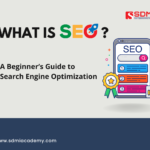In the ever-changing realm of digital marketing, it’s essential to keep abreast of the latest trends and algorithms to maintain a robust online presence.
One such crucial concept that has gained prominence is Google E-E-A-T. Understanding Google E-E-A-T (Experience, Expertise, Authoritativeness, and Trustworthiness) is essential for anyone looking to improve their website’s search engine rankings and overall credibility. This blog post will delve into what Google E-E-A-T is, why it matters for your website, and how you can leverage it to enhance your online presence.
Section 1: What is Google E-E-A-T?
Google E-E-A-T stands for Experience, Expertise, Authoritativeness, and Trustworthiness. It is a set of quality guidelines used by Google’s search quality evaluators to assess the credibility and reliability of websites. These guidelines help Google determine which websites provide valuable, accurate, and trustworthy content to users.
E-E-A-T has evolved over time, reflecting Google’s commitment to delivering high-quality search results. Initially, Google focused on E-A-T (Expertise, Authoritativeness, Trustworthiness), but the addition of Experience emphasizes the importance of real-life, practical knowledge. E-E-A-T plays a significant role in Google’s search algorithm, influencing how websites are ranked in search results.
Section 2: Breaking Down E-E-A-T
1. Experience
Experience refers to the practical knowledge and firsthand involvement an individual or website has in a particular field. Websites that demonstrate real-life experience tend to be more credible and trustworthy. For example, a travel blog written by an experienced traveler who shares personal stories, tips, and insights will likely rank higher than one without such practical experience.
2. Expertise
Expertise relates to the depth of knowledge and proficiency in a specific area. Websites that feature content written by experts or specialists are considered more reliable. For instance, a medical website authored by certified doctors or healthcare professionals is deemed more authoritative than one without expert contributors.
3. Authoritativeness
Authoritativeness measures the credibility and influence of a website within its niche. This can be established through quality content, backlinks from reputable sites, and citations from authoritative sources. A news website with citations from other well-known media outlets, for example, will have higher authoritativeness.
4. Trustworthiness
Trustworthiness is about the reliability and integrity of a website. Trustworthy websites are transparent, accurate, and provide a safe browsing experience. For instance, e-commerce sites with clear return policies, secure payment gateways, and positive customer reviews are considered trustworthy.
Section 3: Why E-E-A-T Matters for Your Website
E-E-A-T is crucial for your website because it directly impacts your search engine rankings and user engagement. Websites that adhere to E-E-A-T guidelines are more likely to appear at the top of search results, attracting more visitors and potential customers. Additionally, a strong E-E-A-T foundation enhances user trust and satisfaction, leading to higher engagement and conversion rates.
Case studies have shown that websites with robust E-E-A-T principles tend to perform better in the long run. For example, health and finance websites that prioritize expert content and trustworthiness have seen significant improvements in their search rankings and user trust.
Section 4: How to Improve E-E-A-T on Your Website
1. Improving Experience
– Share personal stories and case studies to demonstrate real-life experience.
– Encourage user-generated content such as reviews and testimonials to add authenticity.
– Include detailed “About Us” pages that highlight the experience of your team members.
2. Enhancing Expertise
– Regularly update your content to reflect the latest trends and information in your field.
– Feature guest posts and articles from industry experts to boost your website’s expertise.
– Offer in-depth guides, tutorials, and resources that showcase your knowledge.
3. Boosting Authoritativeness
– Create top-notch backlinks from trustworthy websites within your industry.
– Leverage social proof by showcasing media mentions, awards, and endorsements.
– Engage with your audience through social media and community forums to establish authority.
4. Increasing Trustworthiness
– Ensure your website is secure with HTTPS and other security measures.
– Maintain transparency by providing clear policies, terms, and contact information.
– Focus on accuracy and cite reliable sources to build trust with your audience.
Section 5: Common Mistakes to Avoid with E-E-A-T
While implementing E-E-A-T principles, it’s essential to avoid common pitfalls that can undermine your efforts. Here are some mistakes to watch out for:
– Publishing low-quality or inaccurate content can damage your credibility.
– Ignoring user feedback and reviews can lead to a lack of trust.
– Overlooking website security can make your site vulnerable to breaches.
Maintaining high standards of content quality and user trust is crucial for leveraging E-E-A-T effectively.
Conclusion
In conclusion, Google E-E-A-T is a vital concept for anyone looking to enhance their website’s search engine performance and user engagement. By understanding and implementing the principles of Experience, Expertise, Authoritativeness, and Trustworthiness, you can build a credible and reliable online presence. Remember, E-E-A-T is not a one-time effort but an ongoing commitment to providing valuable and trustworthy content to your audience. Start implementing these strategies today and watch your website thrive in the competitive digital landscape.
For more tips and personalized guidance on improving your website’s E-E-A-T, feel free to reach out or explore our other blog posts at SDMI Academy






